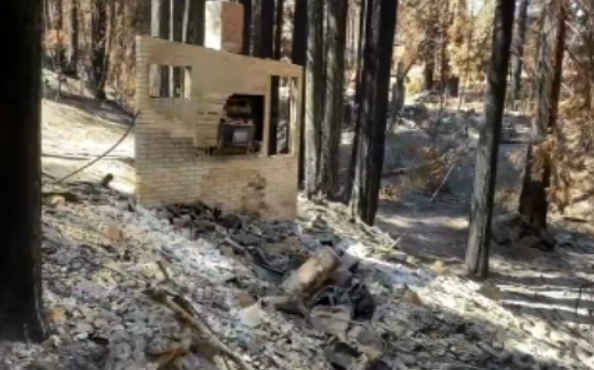What to Know
- Insurance industry says rates don’t match risk
- Data shows insurance industry is still making a profit
- Consumer advocates mixed on insurance commissioner’s plans
Cynthia Marino and Dio Lokes are longtime neighbors in a condominium complex in Pomona.
Their homeowners insurance company recently dropped them, and pointed to the hills that surround their condos, and said the fire risk is too high. Marino and Lokes said there haven’t been any nearby fires in years.
“I was just stunned. I was shocked. I just stood there dumbfounded,” said Marino.
Get top local stories in Southern California delivered to you every morning. >Sign up for NBC LA's News Headlines newsletter.
It means having to cancel our vacation. It means having to figure out how we're going to make ends meet when we already have other obligations.
CYNTHIA MARINO, Dropped by Insurance Company
Their homeowners association scrambled to find a new insurer, but couldn’t. So they were forced to buy insurance from the surplus market, where the companies are regulated by the state, but can charge whatever they want. Marino and Lokes said their premium increased 800%, hitting their finances hard.
“It means having to cancel our vacation. It means having to figure out how we’re going to make ends meet when we already have other obligations,” said Marino.
Other homeowners have told the I-Team they’ve been forced to buy insurance through the state’s FAIR Plan, another last resort option that’s expensive and limited in its coverage.
Mark Sektnan, a spokesperson for American Property Casualty Insurance Association, a trade group for insurance companies, said California’s home insurance market is at a tipping point because insurance rates don’t match the current wildfire risk.
“So insurers face a tough challenge, which is they want to stay in business, they want to keep customers, but they can’t keep writing policies at a loss,” he said.
Insurance Industry Still Profitable
The I-Team sorted through the most recent fire data with the California Department of Insurance. During the big fire years of 2017 and 2018, insurance companies collected more than $15 billion from homeowners and paid $29 billion in claims. The insurers recovered $11 billion from a utility company whose equipment started some fires, but that still left insurances $3 billion in the red. For 2019 through 2021, things started turning around. Insurers collected $28 billion from homeowners and paid $11 billion in claims, putting them $17 billion in the black.
In line with this data, the number of homeowners in the surplus market has fallen. But those on the FAIR Plan have nearly doubled in the past five years.
Consumer Advocates Have Mixed Views
Insurance Commissioner Ricardo Lara has said he’s trying to protect homeowners and make insurance more available. He pushed for a new regulation that, among other things, requires insurance companies to offer discounts to homeowners who mitigate their properties, like clearing away overgrown trees and brush and installing fire resistant roofs.
But the consumer advocates at Consumer Watchdog said Lara needs to go a step further and require insurance companies to consider mitigation when selling insurance too. They say that will make it harder for insurers to abandon homeowners.
“It’s a frequent story in California, that homeowners spend a lot of money to protect their homes from fires and then find out at the end of the year that their insurance company will no longer sell to them. He could make insurance companies consider mitigation when deciding if an area is too risky to sell in. He refused to do that,” said Carmen Balber with Consumer Watchdog.
But consumer advocates at United Policyholders don’t believe it’s that easy. They're worried that if Lara pushes too hard, insurers will flee the state.
“A lot of people think that if they’ve been with an insurance company for a long time, they have an invested right to stay with that insurance company. And there is some logic to that. But the law is that the insurance company gets to pick and choose their customers,” said Amy Bach with United Policyholders.
Bach pointed out that Lara has the authority to issue a moratorium after a wildfire, to prevent insurers from bolting on those impacted, and he’s taken that step in the past.
But for now, insuring in California is a problem that remains, with no clear path to fixing it.
“I want people to understand that it’s happening. And I think it’s coming for us all,” said Lokes.
Here’s What to Do If Your Insurance is Canceled
- Be ready to act. You may only have a couple of months to get new insurance, so take action right away.
- Shop around. Insurance companies spread out their risk, so while your insurance company may thinks it has too much risk in your neighborhood, another one may not, and may be willing to insure you.
- Find an insurance broker. Look for a broker that knows your neighborhood well. They may be able to point you to a company that will insure you.
- Contact FAIR Plan as a backup. It only offers basic coverage, so you’ll need additional insurance too.
- Attend a webinar with United Policyholders. You’ll likely gain information that will help you.



